The Art of Making Anyone Feel Heard, Understood, and Valued
by Speaker Brian Miller
We meet and interact with 80,000 people over the course of a lifetime.
Eighty. Thousand. People.
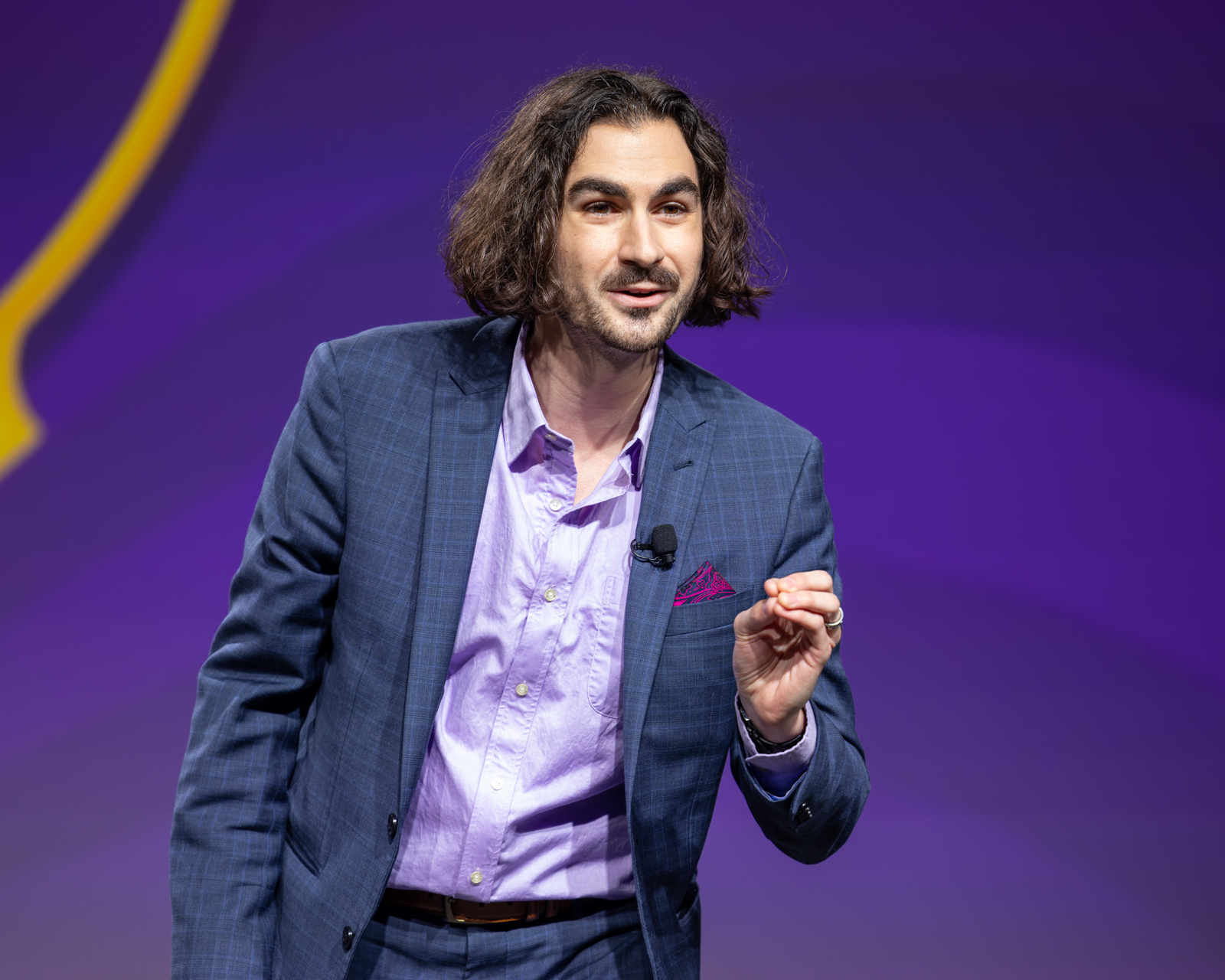
It’s about 10,000 people per decade of your life. You’re 30? You’ve met 30,000 people.
The question is this: How many of those stories do you know?
How many of their names do you remember? With how many of those people did you share a meaningful connection?
Too few, I bet.
Our Internal Lives
‘Sonder’ describes the feeling you get when you see a stranger and you realize they have an entire life of their own you know nothing about.
You know that noise in the back of your head, that low-grade hum that whispers things like, you’re not good enough, or you’re not smart enough, or you don’t deserve to be happy?
Every single person you meet and interact with has their own version of that noise. And once you realize that, you cannot treat people like transactions anymore.
Because that’s what we’re doing. We don’t even realize how many people we meet on a daily basis because we treat each other as a means to an end.
Some bad news: 2 out of every 3 Americans feel lonely or isolated on a regular basis.
Lonely people are twice as likely to miss work or school due to stress, and five times as likely to miss due to illness. They think about quitting or dropping out twice as often and act on it. They have drastically higher rates of anxiety and depression.
It will come as no surprise to you that these numbers are highest and worst for Gen Z- your students.
It’s so bad that loneliness is now considered an epidemic by global health service organizations. Studies show that loneliness has the same impact on mortality as smoking 15 cigarettes per day.
People no longer feel heard, understood, or valued… and it’s literally killing us.
But it doesn’t have to be that way.
Human connection is a gift. It’s a gift you give to others. You can join the human connection revolution. Better yet, you can lead it.
And you must.
Journey to Connection
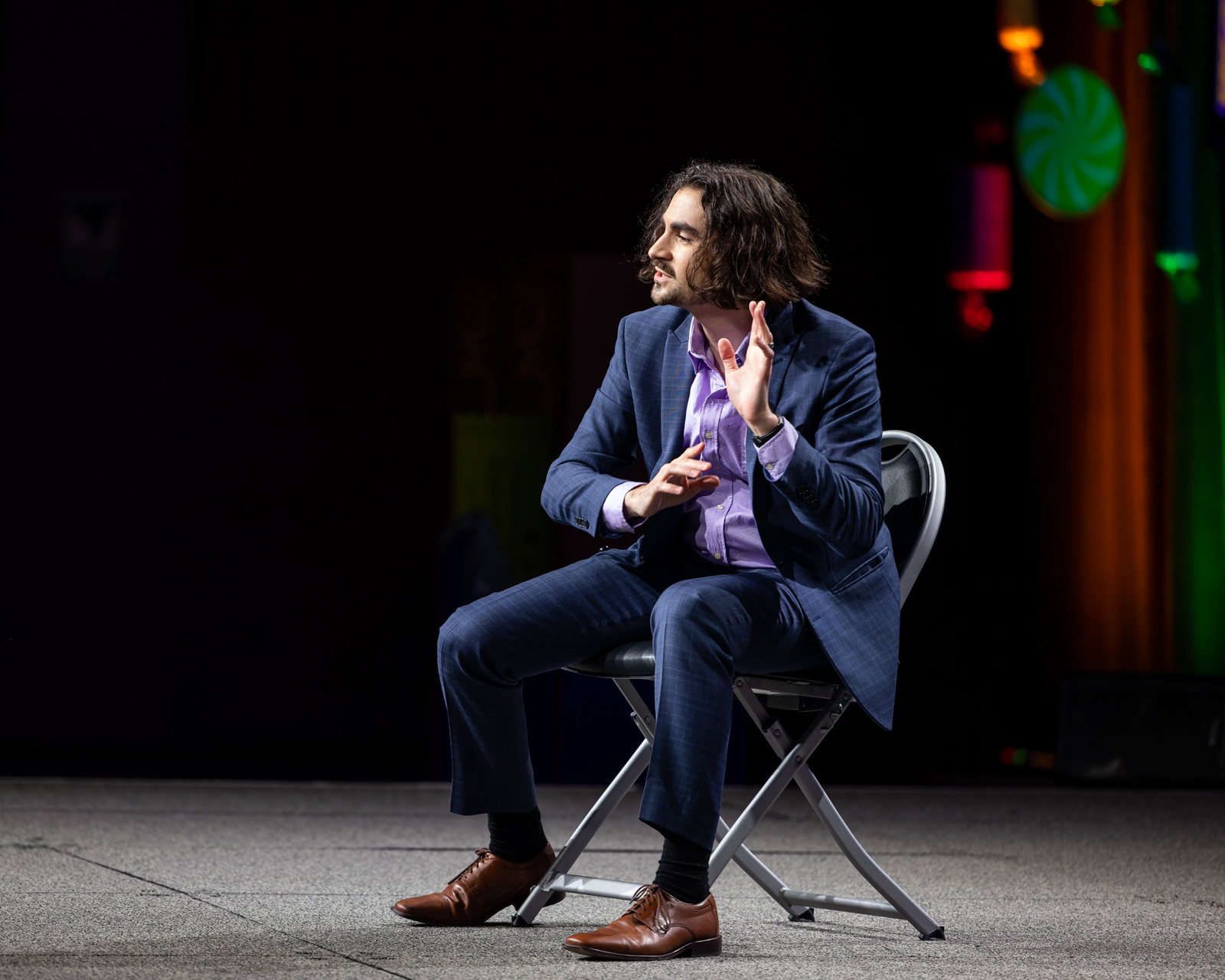
For years I struggled with relationships.
Not that I ever had trouble getting into them; I was always great at making new friends and getting into romances. Rather, I always struggled to maintain them.
A pattern emerged: things would start off exciting, then communication would quickly break down, people would leave, and I would be alone again.
This cycle continued from my teenage years through college and even into my early adulthood. In fact, it took an embarrassingly long time to finally admit that it was my fault.
The people in my life didn’t believe that I was invested in them. That wasn’t true, but it doesn’t matter. I discovered a fundamental truth about relationships:
It’s not enough to care about someone. It’s not enough to understand them.
They have to feel understood. They have to feel cared about.
And I wasn’t doing that.
But then I discovered a secret that changed my life forever. I realized that all of the tools I need to make meaningful connections were already at my side, hidden within techniques that I had honed on stage as a professional magician.
In this article I’m going to teach you just one of those techniques, but it will completely change the way you approach your daily interactions.
E.A.R.S. is a four-part system for being a conscious and considerate active listener. It’s a guaranteed way to make the people in your life feel heard, understood, and valued.
I’ve taught this all over the world to engineers, accountants, sales reps, marketers, CEOs, doctors, nurses, and even correctional officers.
I’ve also taught it to thousands of educators, higher ed professionals, and students across America.
It works.
E.A.R.S. will make you a better friend, colleague, boss, parent, spouse, human.
Eye Contact
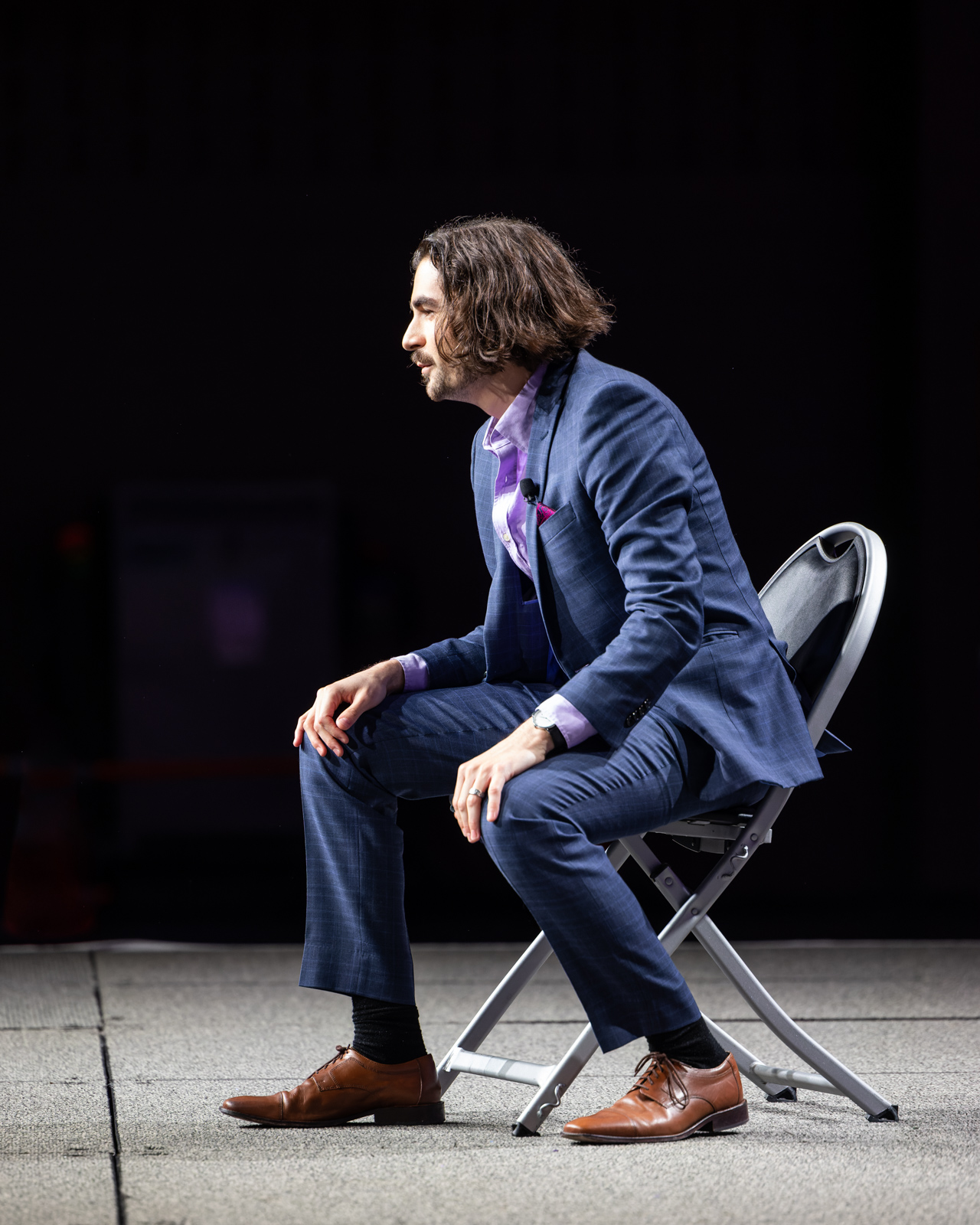
I’ll never forget the first magic trick I ever performed.
I was only 4 years old and holding hands with my grandmother as she led me into a public restroom. I grew up before gender neutral restrooms, and even before family restrooms! So, naturally, she led me into the ladies’ room because the men’s room that I was used to was out of the question.
Surrounded by women in a foreign place and feeling embarrassed about what I had to do, I covered my eyes with both hands and the most amazing thing happened.
I made myself disappear.
Ha! If only, right?
By the age of 3 or 4, almost every kid learns to cover their eyes with their hands if they are feeling afraid or embarrassed. Why?
Because if you can’t see me, I may as well be invisible.
DO THIS: While engaged in conversation, the passive participant (the listener) should maintain eye contact with the speaker.
Imagine telling your friend a story. You, the speaker, and not making eye contact. Your eyes dart around the room as you recall the details of the story you’re telling.
But every so often your eyes drift back to the listener for a brief moment in order to “check in.” If at that moment your friend is not making eye contact with you, how do you feel?
You feel invisible.
The feeling of not being heard or understood is supremely powerful.
And here’s the key: If the person you’re listening to feels like you aren’t paying attention, whether you are or not is no longer relevant; the bond is shattered.
Voltaire said it perfectly: “I see you see me.”
Avoid Distraction
Have you ever been fooled by a card trick? Of course you have. And it’s not because magicians are so clever. It’s because your brain can’t do two things at once.
Multitasking is a myth.
I bet you even knew that. It’s been debunked by science over and over again. And yet we all operate as if it’s possible to carry on a meaningful conversation while also checking Tik Tok, or looking at the restaurant menu, or checking out that cute person across the quad, or thinking about that fight we had with mom last week.
Stop.
We are too distracted, and it’s destroying our relationships.
DO THIS: Give your conversational partner your true, undivided attention.
My friend Julian Treasure is a 5-time TED speaker with over 80 million views, and an internationally recognized expert on sound and communication. In 2019 he said this on my podcast Beyond Networking:
“Most people have never had the experience of being truly listened to.”
That’s the gift of human connection. It’s free to give, and it never runs out. Be present and attentive. Not just by putting your phone away, but by putting it out of your mind.
Reflection
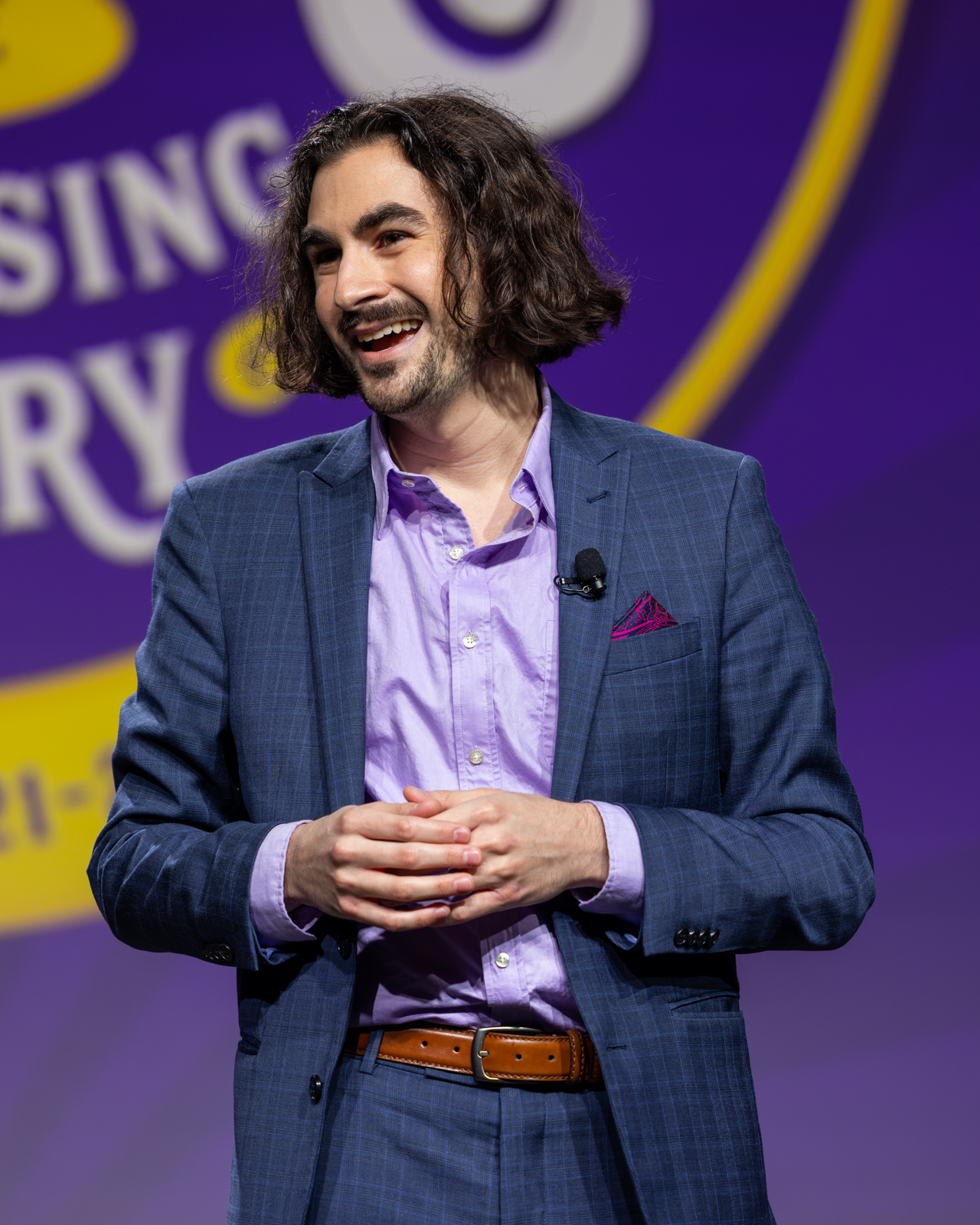
Here’s how you know someone isn’t really listening to you: When you stop talking you’re met with 2 seconds of silence, and then they say,
“Yeah!”
It’s brutal. You know what it feels like when someone is acting as if they’re listening, but totally checked out. You don’t just feel invisible, you feel worthless.
Instead, let’s make others feel like they’re the only person who matters at that moment. And to do that, we can use a technique called ‘reflection.’
DO THIS: Paraphrase what they just said, in your words, from their point-of-view.
The key to this technique is rephrasing whatever they just said but from their perspective, not yours. You must abstain from adding your opinion.
It’s simple, but it is not easy.
When you first try it you’ll definitely feel weird. It won’t feel like a normal way to have a conversation. But trust the technique and keep at it. You’ll be shocked by how effective reflection is for making meaningful connections.
If you’re not quite sure how to do it, try starting with, “So, what you’re saying is…” or, “It sounds like you’re saying…” and ending with, “Do I have that right?” or “Am I understanding?”
The beauty of this technique is that you may not have understood them properly, and now you know! Because after you reflect, they might say, “No, that’s not what I meant,” and then explain again.
It can’t be understated how helpful that is in avoiding misunderstandings.
Summarize
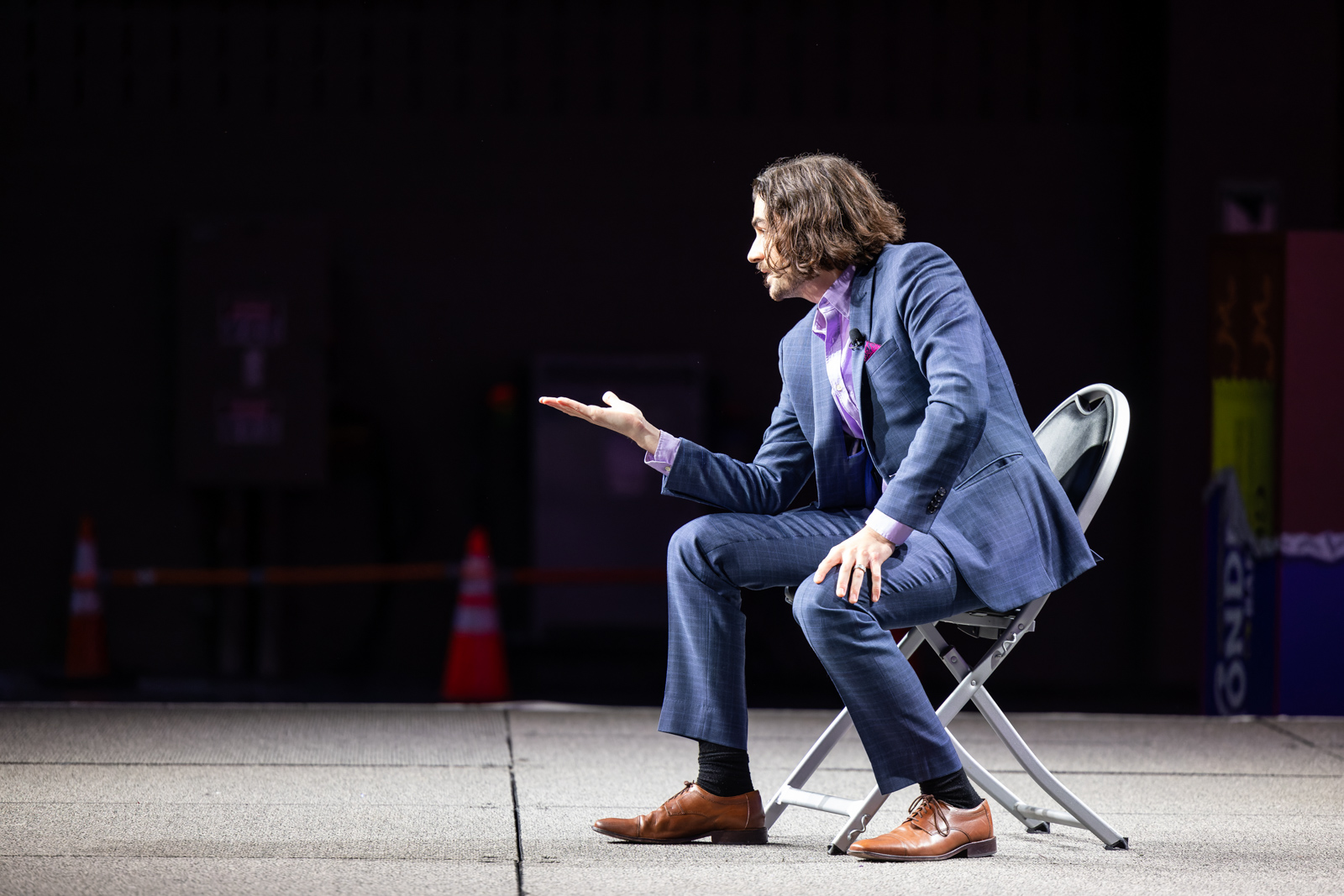
The final step of E.A.R.S. is the easiest, and often the most important.
How often do we get to the end of an argument only to discover that we’ve been agreeing the entire time?
The trouble is that even after you have intellectually accepted the fact that you agree, the negative feeling of having argued sticks around. We only have a limited amount of emotional currency, and it doesn’t replenish nearly as quickly as it drains.
DO THIS: Using the reflection technique after your conversational partner has finished speaking completely.
This is especially helpful when you are debating or disagreeing. You can’t meaningfully disagree with someone if you don’t truly understand their perspective. You will be forever doomed to shouting past each other.
Witness social media over the past few years. Regardless of where you land on the political spectrum, the opposite side never seems to remotely understand where you are coming from.
They just don’t get it. They’re a bunch of idiots.
Debates are healthy. Shouting matches are not. In order to keep disagreeable conversations productive, summarize their entire position using the reflection technique before launching into your rebuttal.
Using Your E.A.R.S.
So, there you have it: Eye contact, Avoid distraction, Reflection, Summarize.
Eye contact makes your conversational partner feel that they are being heard.
Avoiding distractions will help you stay focused on what is being said.
Reflection confirms to them that you are absorbing the details rather than just getting the gist (or ignoring them outright).
Summarizing is the final conversational checkpoint to avoid miscommunication and unnecessary arguments.
E.A.R.S. is a practical way to stay engaged in every conversation with absolutely anyone that you meet. You will find that this seemingly simple system not only breeds connections, but it also decreases your self-conscious tendencies in social situations:
Does she like me?
Should I have said that?
Did they think that was funny or find it stupid?
Did I just mispronounce that word?
Why is he looking at my hair?
The natural consequence of active listening is that it focuses your mind on the perspective of others, rather than on your perception of yourself. When all of your energy is channeled into truly understanding what someone else is saying, there’s simply no room left to worry about how you look or sound.
In that way, it benefits all parties.
Learning to use my EARS has made me a better magician, yes. But more importantly it made me a better friend, son, and husband, and now father.
You’re going to meet 80,000 people in your lifetime. What will you do with your opportunities today?
For more, book Brian Miller as a speaker for your next event.


